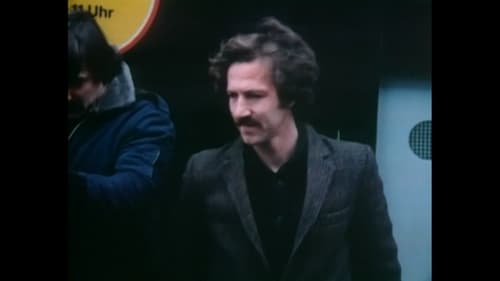
Writer
An intimate quest by a son to understand the identity of his father; a look back at the Berlin of the 30s and a special group of friends who loved life and, in the darkest hours of German history, ultimately chose good over evil.

Director
An intimate quest by a son to understand the identity of his father; a look back at the Berlin of the 30s and a special group of friends who loved life and, in the darkest hours of German history, ultimately chose good over evil.

Director
On 20 July 1944, an assassination attempt was made on the life of Adolf Hitler; its failure and that of the coup d'état planned to follow, Operation Valkyrie, lead to the arrest and execution of thousands of people. In his film, "The Traitors' Children", Christian Weisenborn presents harrowing encounters with the children of the executed conspirators, while also taking a look at his own family history. His parents belonged to a group of anti-fascists, which the Gestapo called the "Rote Kapelle" (the red chapel). Weisenborn's parents survived, but 52 of their friends were hanged in Plötzensee in 1942/43. Weisenborn also interviewed their sons and daughters.

Himself

Writer
Christian Weisenborn and Werner Herzog know each other for more than 40 years. His first film on Werner Herzog "I am my films" (1976-78) covered Herzog's beginning as a filmmaker, the new film is a sequel titled "I am my films, part 2 - 30 years later" in which Weisenborn talks about Werner Herzog as a documentarian of the past 30 years.

Director
Christian Weisenborn and Werner Herzog know each other for more than 40 years. His first film on Werner Herzog "I am my films" (1976-78) covered Herzog's beginning as a filmmaker, the new film is a sequel titled "I am my films, part 2 - 30 years later" in which Weisenborn talks about Werner Herzog as a documentarian of the past 30 years.

Editor
"Sometimes the ball is bewitched," says legendary soccer coach Rudi Gutendorf. He's the one who would know, after having coached 6 first division soccer teams in Germany alone and countless others in 38 countries around the world.

Cinematography
"Sometimes the ball is bewitched," says legendary soccer coach Rudi Gutendorf. He's the one who would know, after having coached 6 first division soccer teams in Germany alone and countless others in 38 countries around the world.

Director
"Sometimes the ball is bewitched," says legendary soccer coach Rudi Gutendorf. He's the one who would know, after having coached 6 first division soccer teams in Germany alone and countless others in 38 countries around the world.

Director
A 1991 film written and directed by Liliane Targownik.

Director
Es war einmal, vor vielen Jahren, da begab es sich, daß der heute so ruhmreiche FC Bayern zu Beginn der neuen Saison ziemlich miserabel dastand: Der Kaiser war fort, kein neuer Pokal schmückte die Trophäensammlung, und statt Harmonie und vollen Konten drückten Frust und Schulden die Stimmung. Und justament während dieser für den Verein so wichtigen Bundesligarunde 1978/79 konnten die Filmemacher Christian Weisenborn und Michael Wulfes die damals noch aktiven Spieler Paul Breitner und Uli Hoeneß dazu überreden, sich eine Saison lang von ihnen mit der Kamera begleiten zu lassen.

Editor
Documental biográfico sobre Werner Herzog, donde se explora la conexión entre el director y sus obras.

Director
Documental biográfico sobre Werner Herzog, donde se explora la conexión entre el director y sus obras.

Location Manager
Alemania, principios del siglo XIX. Kaspar es un enigmático muchacho que ha pasado toda la vida encerrado y aislado en una cueva: no conoce, pues, el lenguaje ni tiene capacidad para relacionarse con los demás. Cuando, en 1828, alguien lo abandona en Nuremberg con una carta para las autoridades locales, se convierte primero en una especie de atracción de feria y después en una curiosidad científica y social.

Property Master
Alemania, principios del siglo XIX. Kaspar es un enigmático muchacho que ha pasado toda la vida encerrado y aislado en una cueva: no conoce, pues, el lenguaje ni tiene capacidad para relacionarse con los demás. Cuando, en 1828, alguien lo abandona en Nuremberg con una carta para las autoridades locales, se convierte primero en una especie de atracción de feria y después en una curiosidad científica y social.

Director












